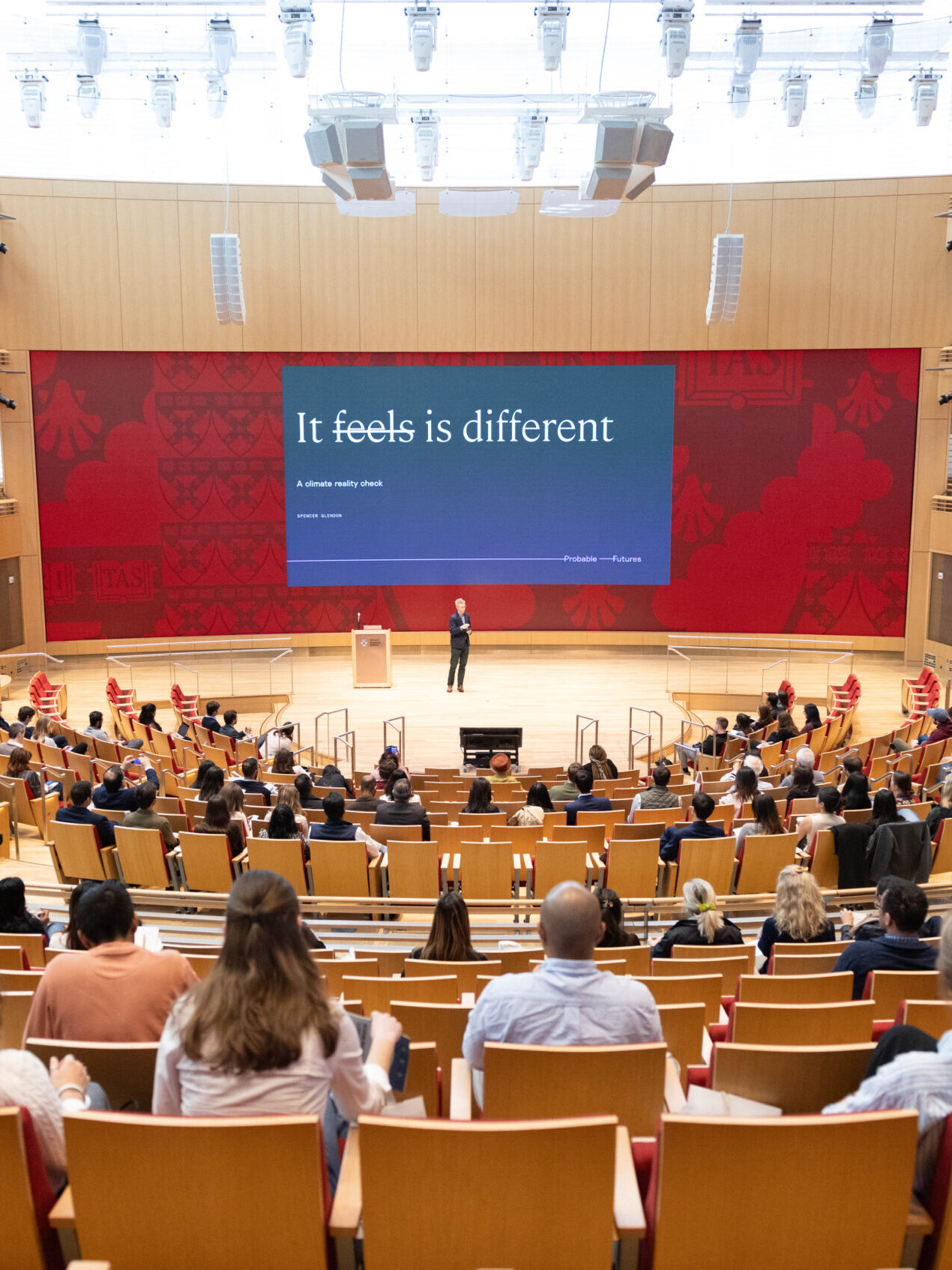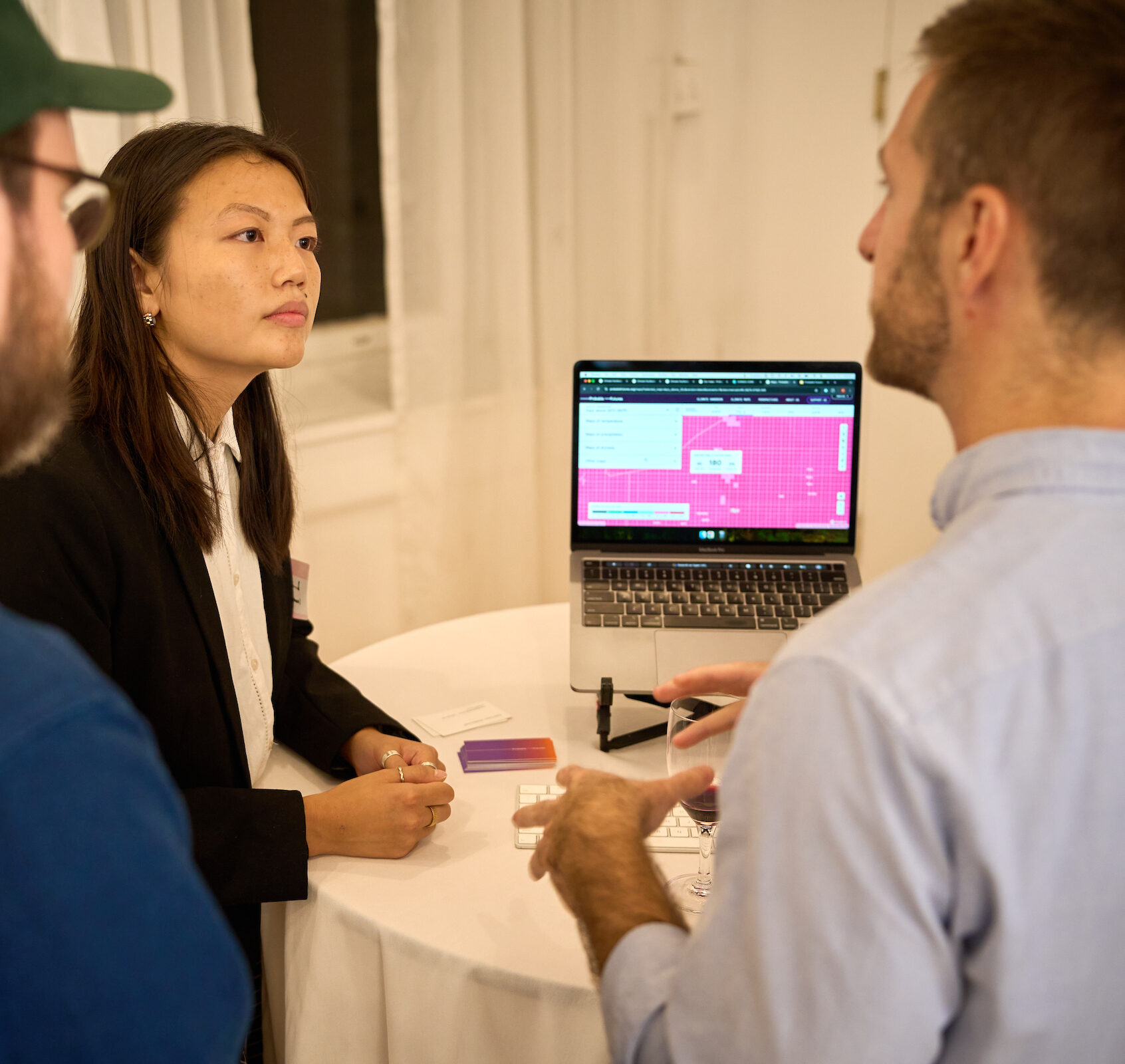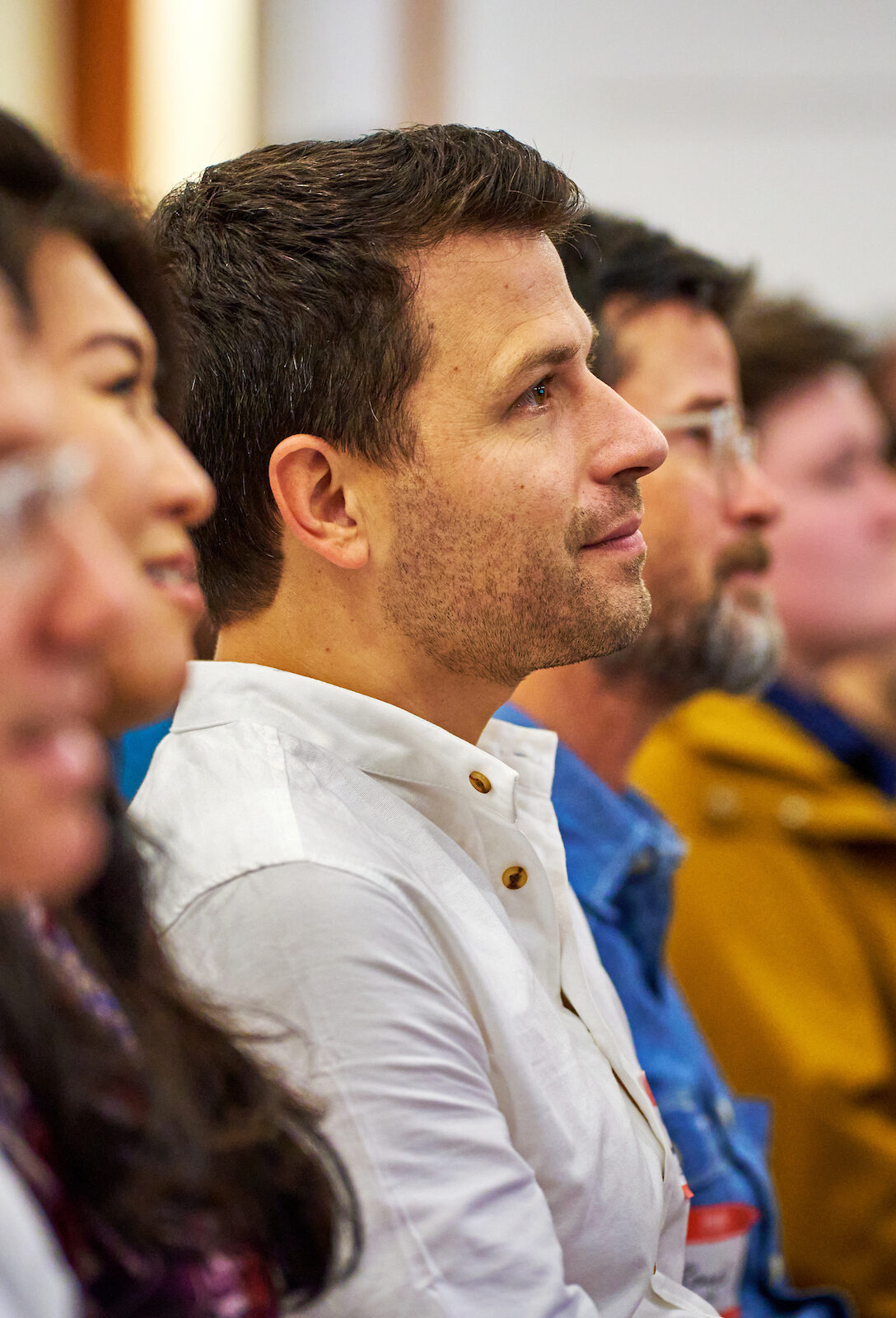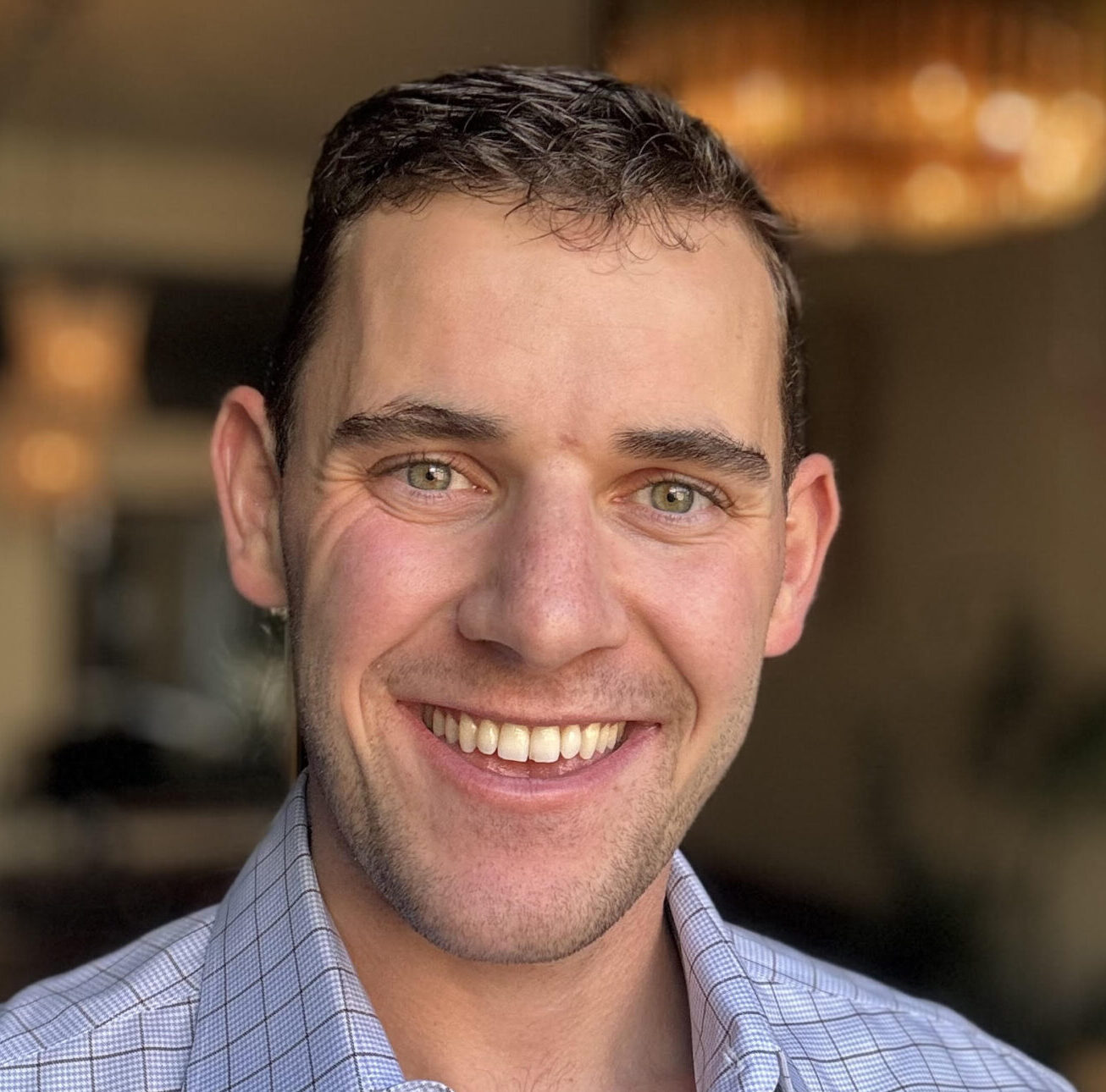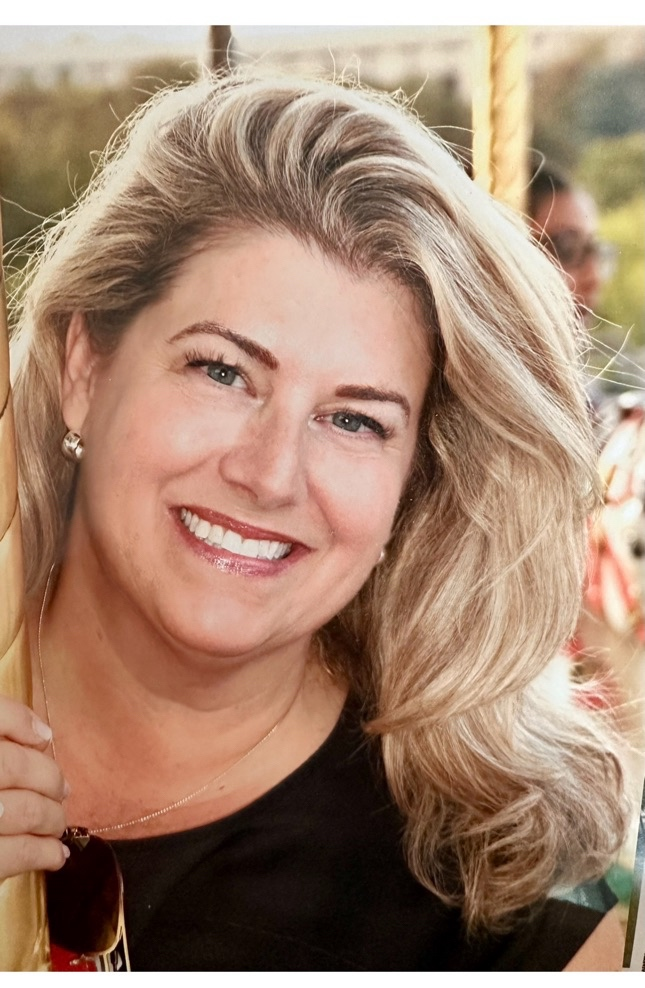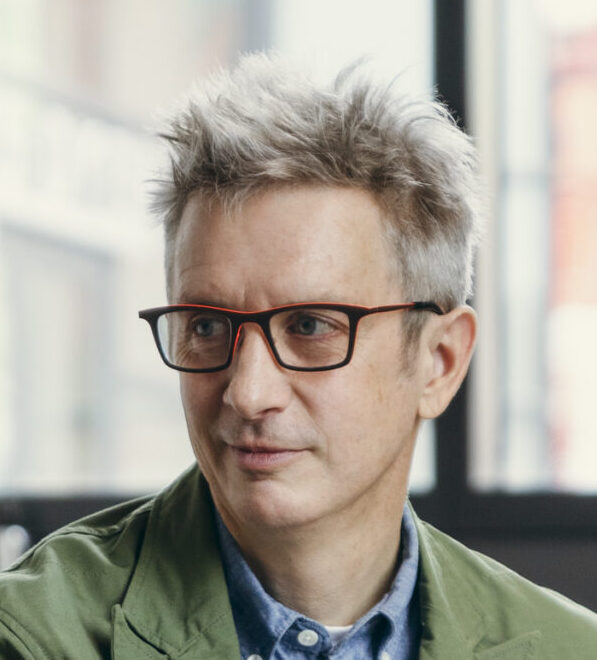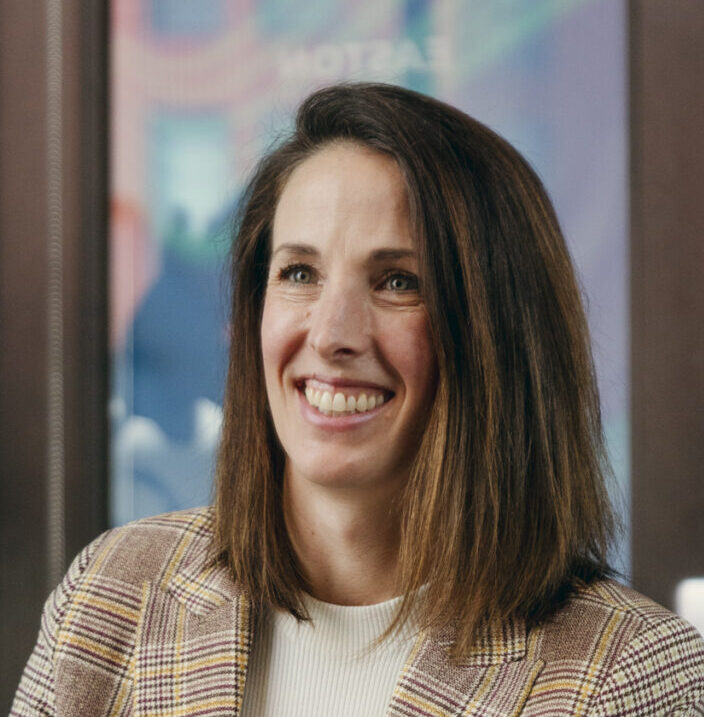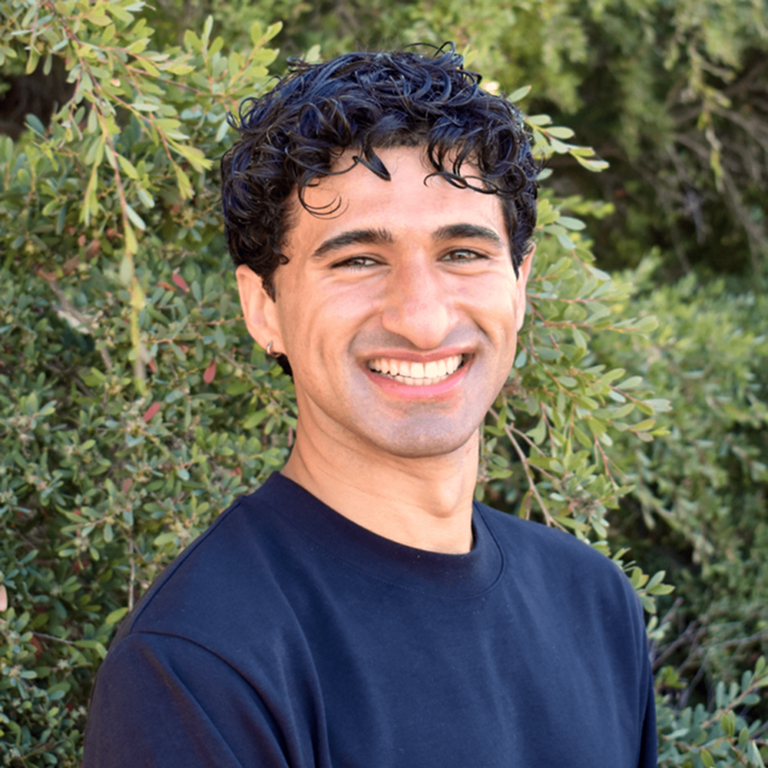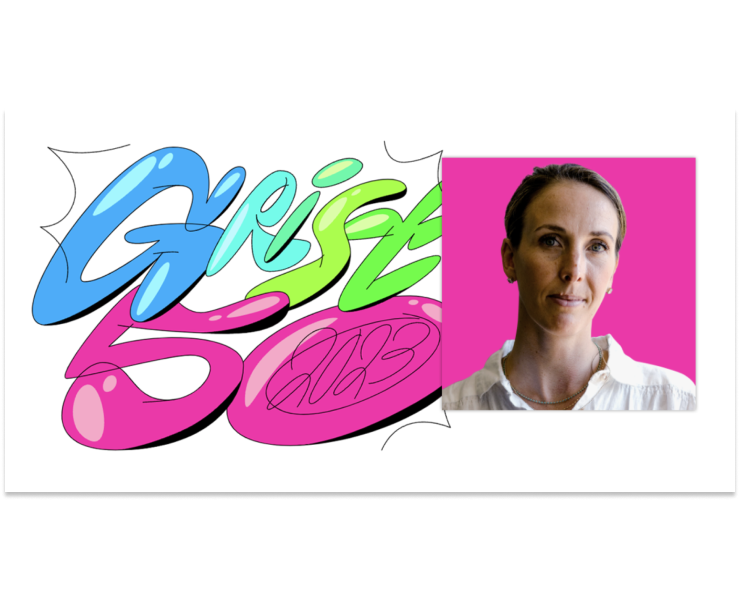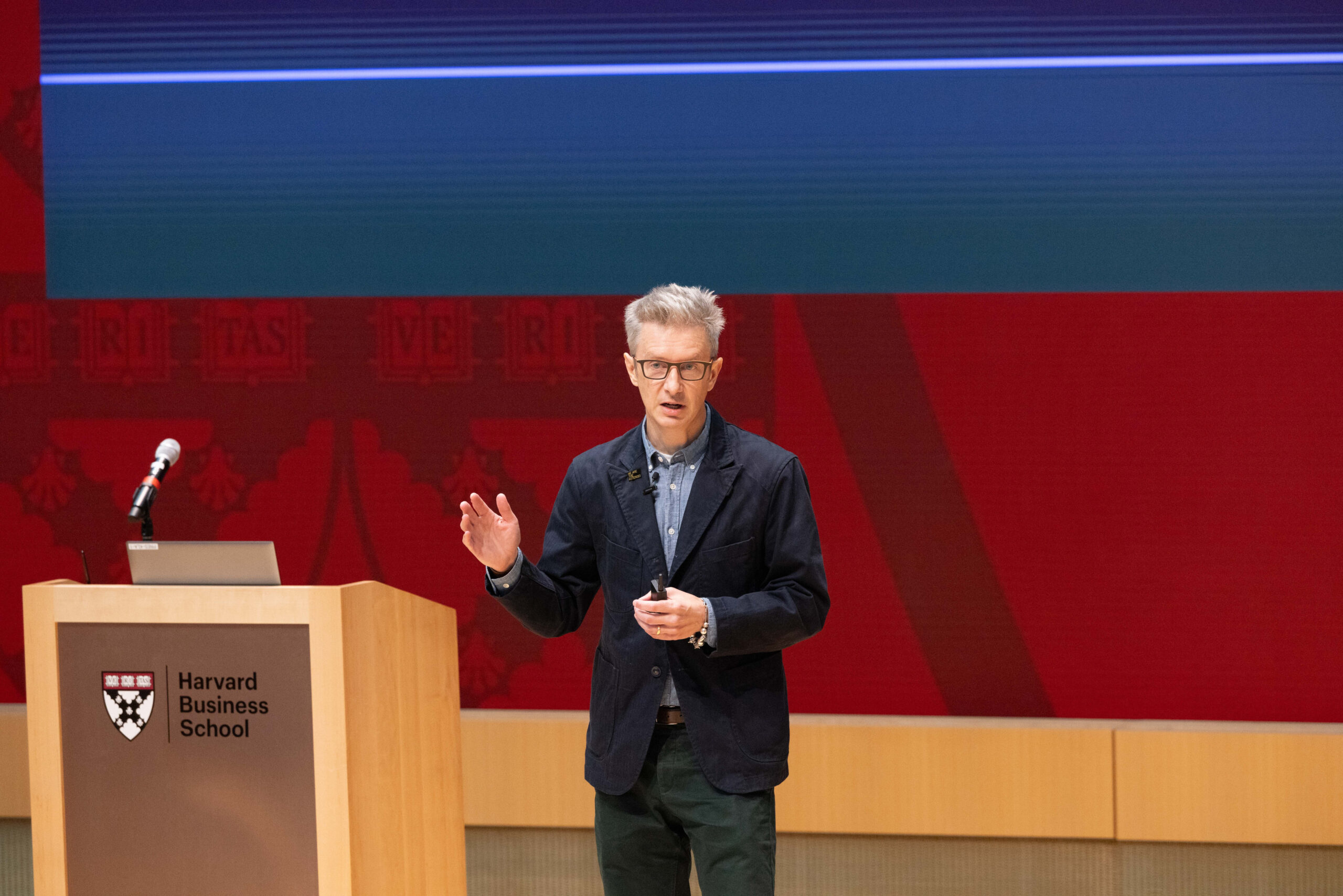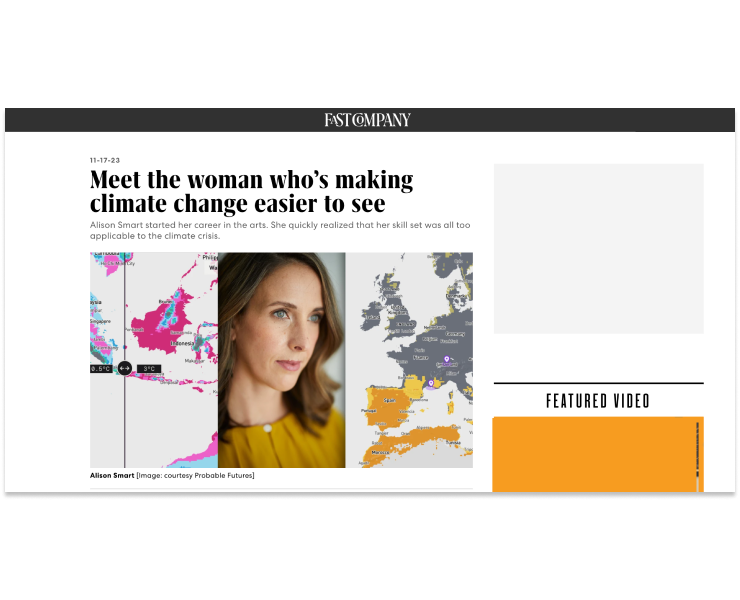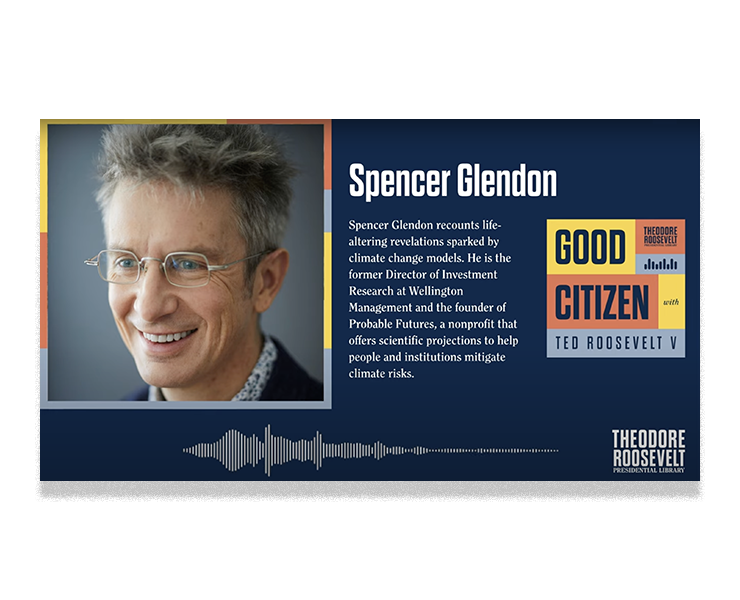Probable Futures 2025 Report
Climate action starts with climate literacy
“One thing I’m taking away from the class: I will never think of Disney World or asphalt in the same way again.”
It was exactly what we were hoping to hear. This feedback came from a Probable Futures course in 2024, a component of which examined how climate change could affect aspects of modern life, from critical infrastructure like roads to the operations of the iconic theme park Disney World. At first glance, it may read as an unremarkable quote, but to our team, it represents real progress toward climate action.
How? Because their reflection marks a new way of seeing the world through the lens of climate change—a shift to what we call a “climate mindset.” At Probable Futures, we guide thousands of people every year through a progression: developing climate literacy, adopting a climate mindset, and ultimately, taking meaningful action.

We see firsthand how this process leads to different forms of climate action. Furthermore, we see how our impact multiplies, as the people we engage with go on to affect many others in their own communities or industries.
Take, for example, Dominique Alepin, who attended a Probable Futures workshop at an event for legal professionals. Inspired by Probable Futures, she launched a climate literacy initiative for K-12 schools in her home region of the Pacific Northwest:
“The Probable Futures presentation opened my aperture to where I could lend my skills and how much action is possible. The organization has spent so much time communicating climate change in a way that gives people hope. That groundwork has let initiatives like ours be able to hit the ground running.”
Dominique’s climate action took the form of education. For others, it might mean dedicating their finance career to climate-resilient infrastructure or making climate-conscious personal choices. While we cannot predict where individual journeys will lead, we know they all begin with climate literacy.
Building societal climate literacy and encouraging new mindsets are ambitious goals that resist precise measurement. When launching Probable Futures, we wrestled with how to evaluate our progress. We dreamt of a ticker that could count each person who experiences the downstream effects of our work. But over time, we have learned that our impact is best viewed through stories from people across professions and geographies about their change in mindset and how it leads to enduring action that reaches beyond themselves.
Through this report, we invite you to explore these stories and reflect with us on our progress so far: We’ve sparked countless “a-ha” moments around the world; our tools have been integrated into influential organizations; and we continue to be invited into new settings.
Over the last five years, we’ve pursued this mission while the global average temperature continues to rise. As climate risks increase in severity and frequency, the need for everyone to understand the fundamentals of climate change is more vital and less abstract. We remain dedicated to creating those transformative moments when someone considers something familiar, be it Disney World, asphalt, or their profession, and begins to see it through the lens of climate change.
This work is possible thanks to dedicated donors—those who launched it and those who sustain it today. Thank you for supporting our mission as we navigate the challenging road ahead.

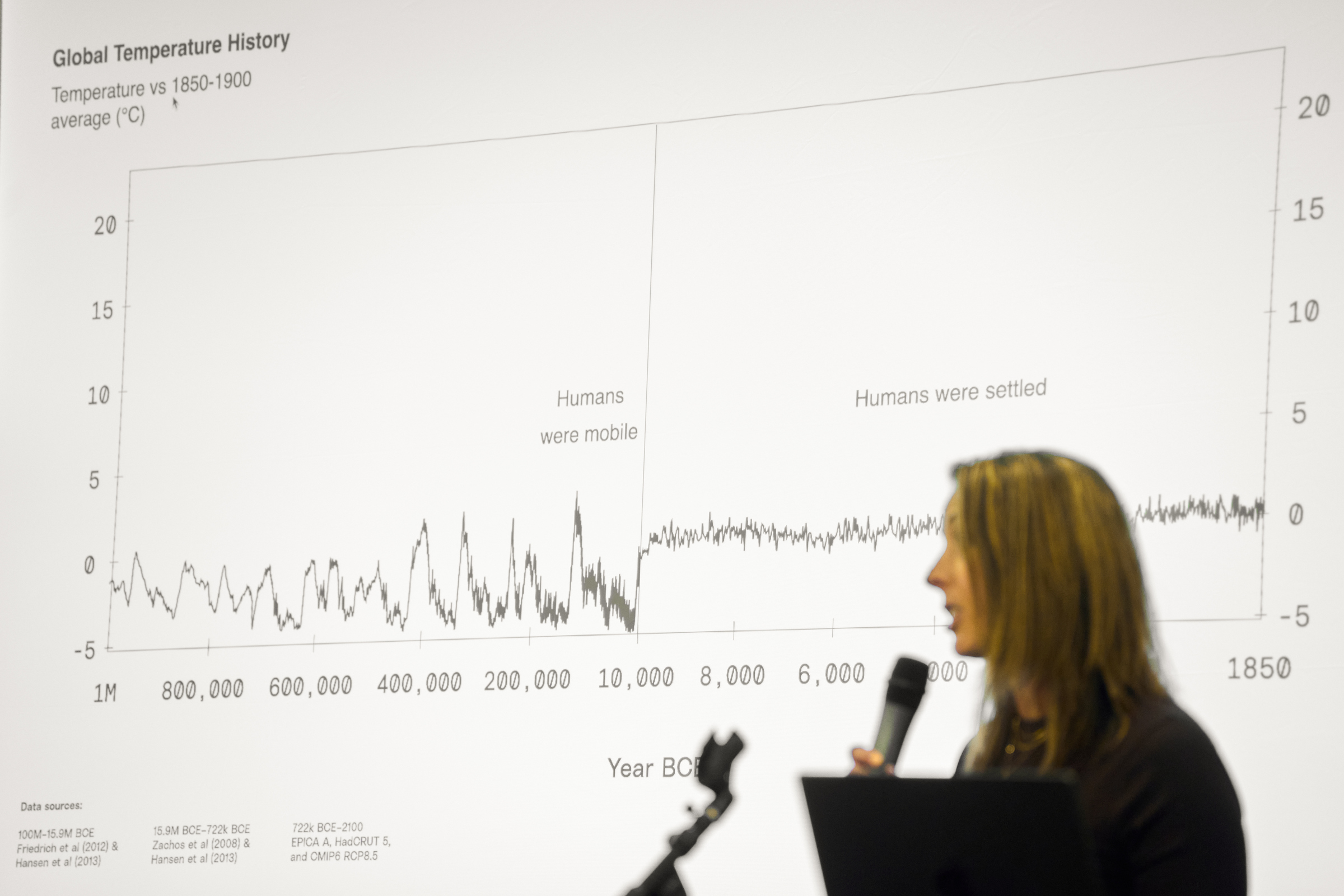
Through live, in-person learning experiences, we help leaders unlock a climate mindset.
Our speaking engagements help leaders whose work is inextricably tied to climate think about climate’s intersection with their work, sometimes for the first time. We’ve heard this realization described as an “a-ha moment,” in which someone sees a new climate dimension to their life and work. We see the impact of these breakthrough moments in attendee feedback, the partnerships we build, and the new spaces we’re invited into.
We’ve created breakthrough moments with leaders across industries, including the organizations above, and many more.
The most actionable, easily-understood, and important talk for the leaders of every organization.
The presentation opened my mind to sustainability in the most direct and accessible way. I became much more motivated to do something after this opening keynote.
After joining a conference co-hosted by Probable Futures, I had a eureka moment that helped me rethink how I communicate climate patterns and their impact on farmers and crop prices to clients.
We collaborate with educators at leading academic institutions and professional development organizations to create a climate-ready workforce.
In the spring of 2023, Spencer Glendon joined Harvard Business School as an Executive Fellow, working closely with Michael Toffel and Peter Tufano to develop a three-day immersive workshop to bring climate literacy to current and future entrepreneurs. Students examined the intersection of business operations and climate risk, including supply chains, real estate, and investment risk.
Since then, Probable Futures has led a core unit of Harvard Business School’s flagship executive education program, the Advanced Management Program, featuring a lecture and climate risk workshop.
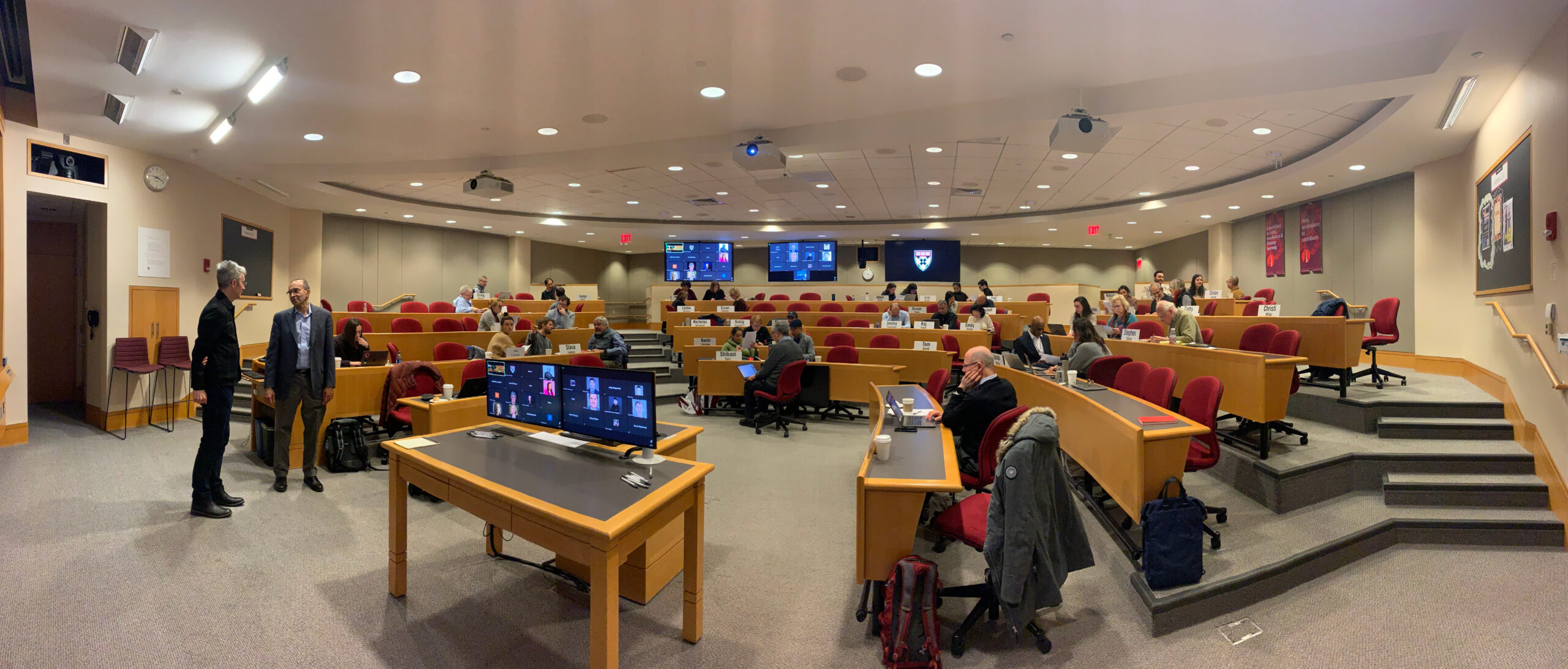
A big ‘a-ha’ for me was the idea of climate stability. The second was realizing that we’re moving out of that climate, yet everything in our culture, beliefs, infrastructure, systems, and processes as humans were built upon this climate we believed would be forever. That blew my mind.
The conference helped reinforce that there truly are profitable opportunities in the climate space. You don’t have to be purely in the environmental space. You could be in any business space, and you can have an impact on climate.
“Spencer Glendon provides a foundational understanding of Probable Futures maps and ideas on which my students can evaluate trade-offs across multiple sectors and regions—just as the tools and resources at Probable Futures do for anyone else living on this planet.”
“Any business leader, politician, or person planning to navigate the future should take advantage of the foresight Probable Futures can offer.”
Terra.do offers courses to help people at all career stages gain the baseline knowledge they need to succeed in working on climate change. In “Climate Change: Learning for Action,” the cohort learned how climate stability came to underpin the world we live in today.
“Probable Futures has been incredibly useful. Smart’s talk helps fellows understand climate change, but it also really helps them know how to communicate about it. And the maps are hands-on. They lead to robust discussions.”
After seeing the impact of the climate stability narrative on fellows, Terra.do invited the Probable Futures team to create our own in-depth course applying the concept of climate stability to real-world scenarios and decisions.
“We partnered with Probable Futures for years to teach and upskill students in our Climate Fellowship program. Co-creating a focused skills course was a natural evolution to deepen our learning community’s expertise around climate risks, impacts, and decision-making.”
We shaped our award-winning climate literacy materials into a four-week course, “Climate-informed Decision-making and Risk Management,” covering climate stability, working with climate data, putting climate risk in context, and making informed decisions based on climate risk and adaptation frameworks.
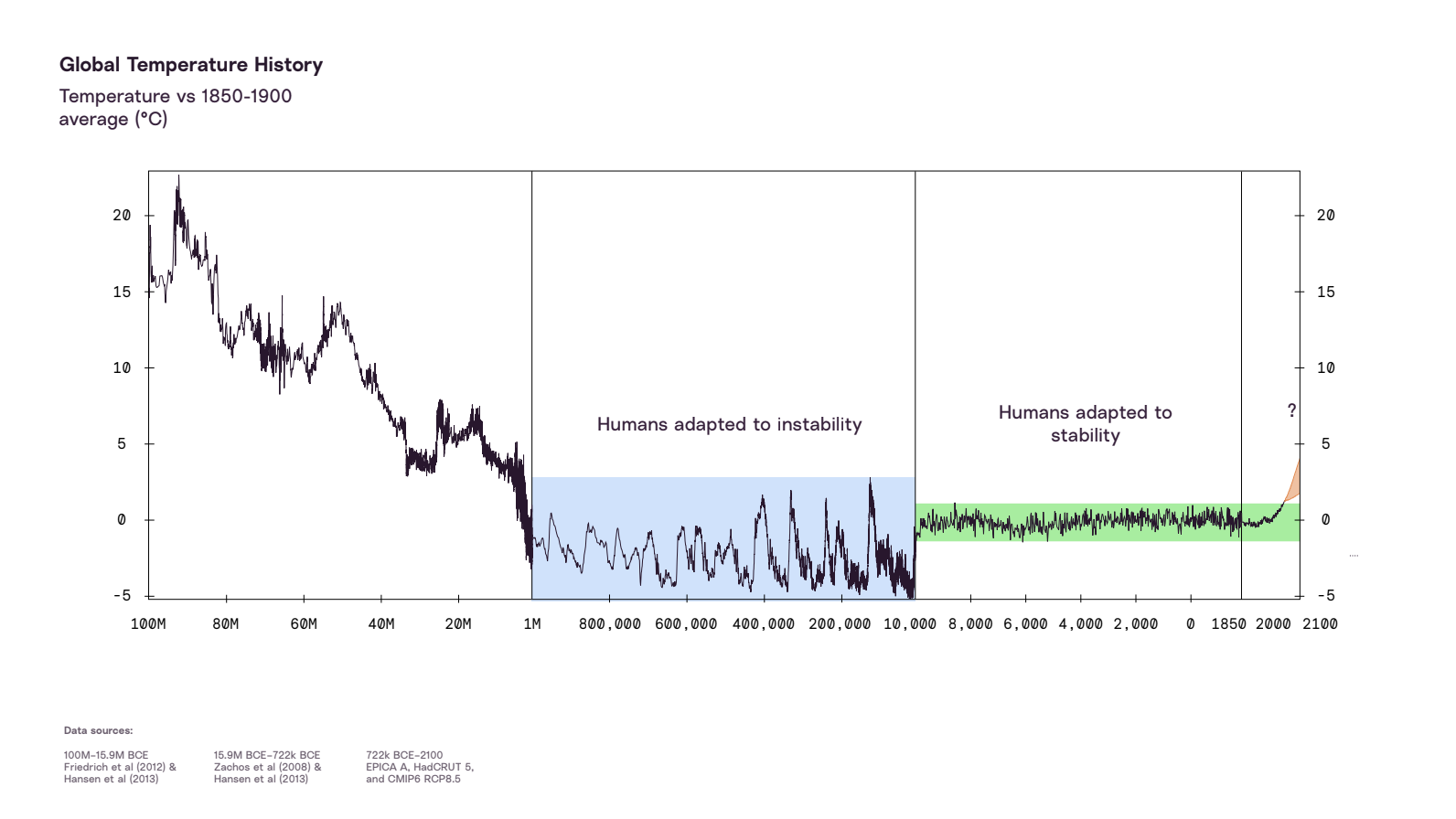
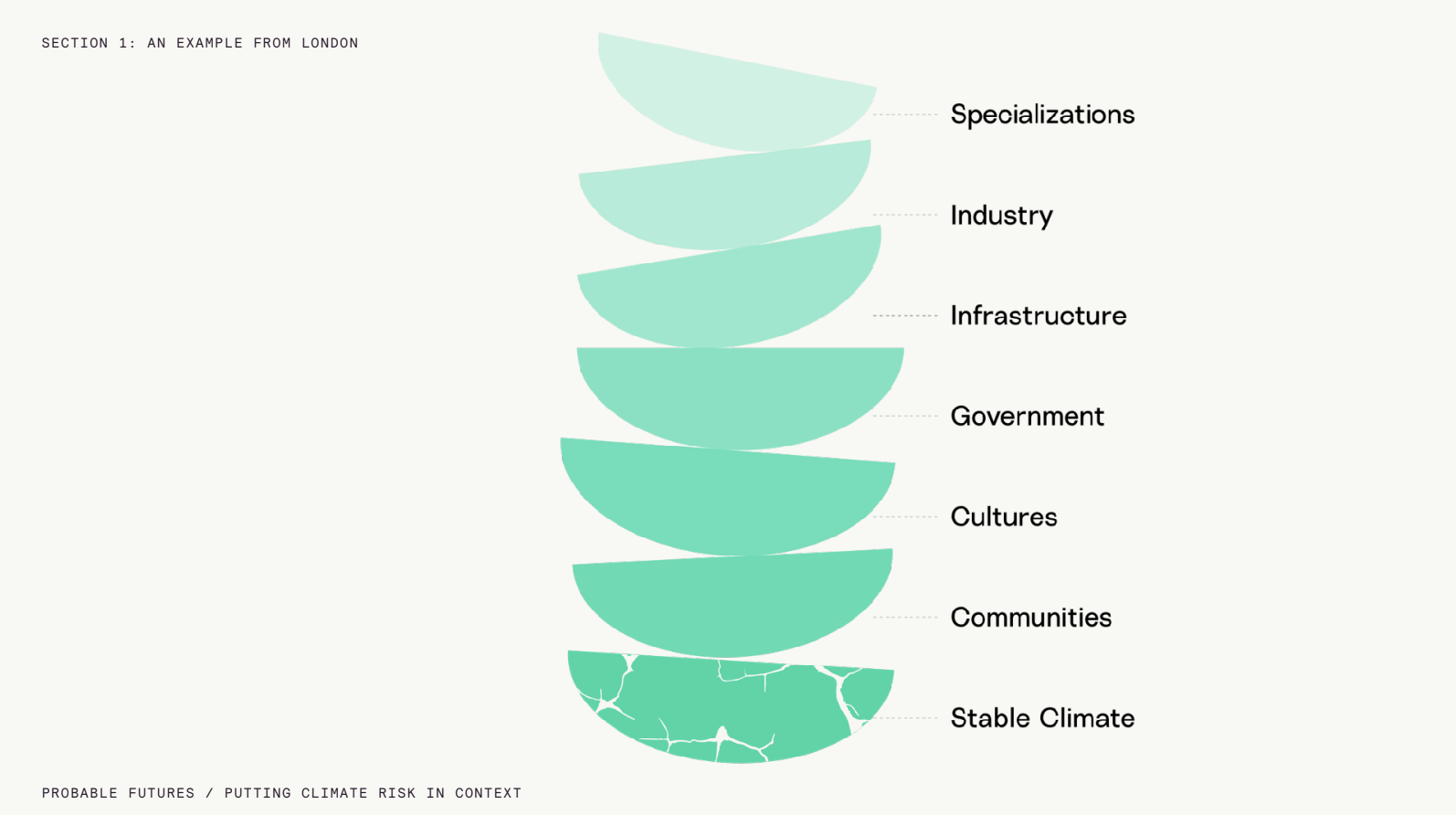
When Terra.do launched the course in October 2024, we met fellows across five different countries, all beginning or transitioning into a career in climate. Through reading assignments, weekly lectures, case studies, independent work, and office hours, fellows gained practical skills and a new climate mindset to identify and assess climate risk in their career paths.
I’ve been able to leverage my strengthened understanding of the science behind climate shifts, expanded awareness of cascading risks, and new frameworks for measuring exposure and taking action in pursuing climate-focused roles.”
Probable Futures broadened my understanding of climate hazards that can impact human health, the built environment, natural ecosystems, and concurrent and impending economic impacts of climate change.”
The class made me realize we take climate stability for granted, like oxygen.”
The course expanded my thinking about how to consider and communicate about the climate risks that await.”
Our digital content empowers individuals across the globe to make climate-informed decisions.
Map explainers on Chiapas, Mexico, Lebanon, Miami, Florida, and the Amazon, and full platform translation into four of the most-spoken languages in the world, allow people across every continent and climate zone to build their climate literacy
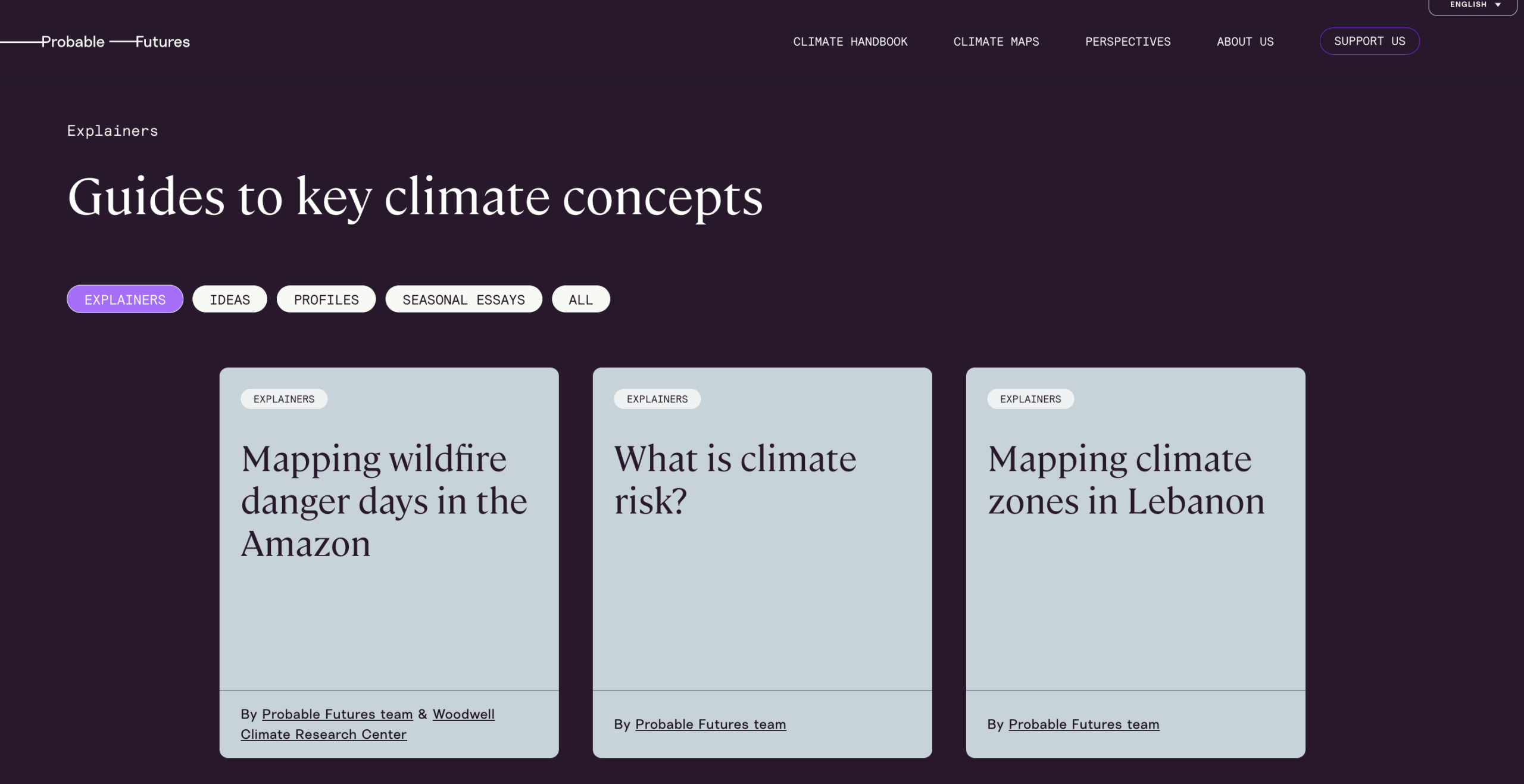
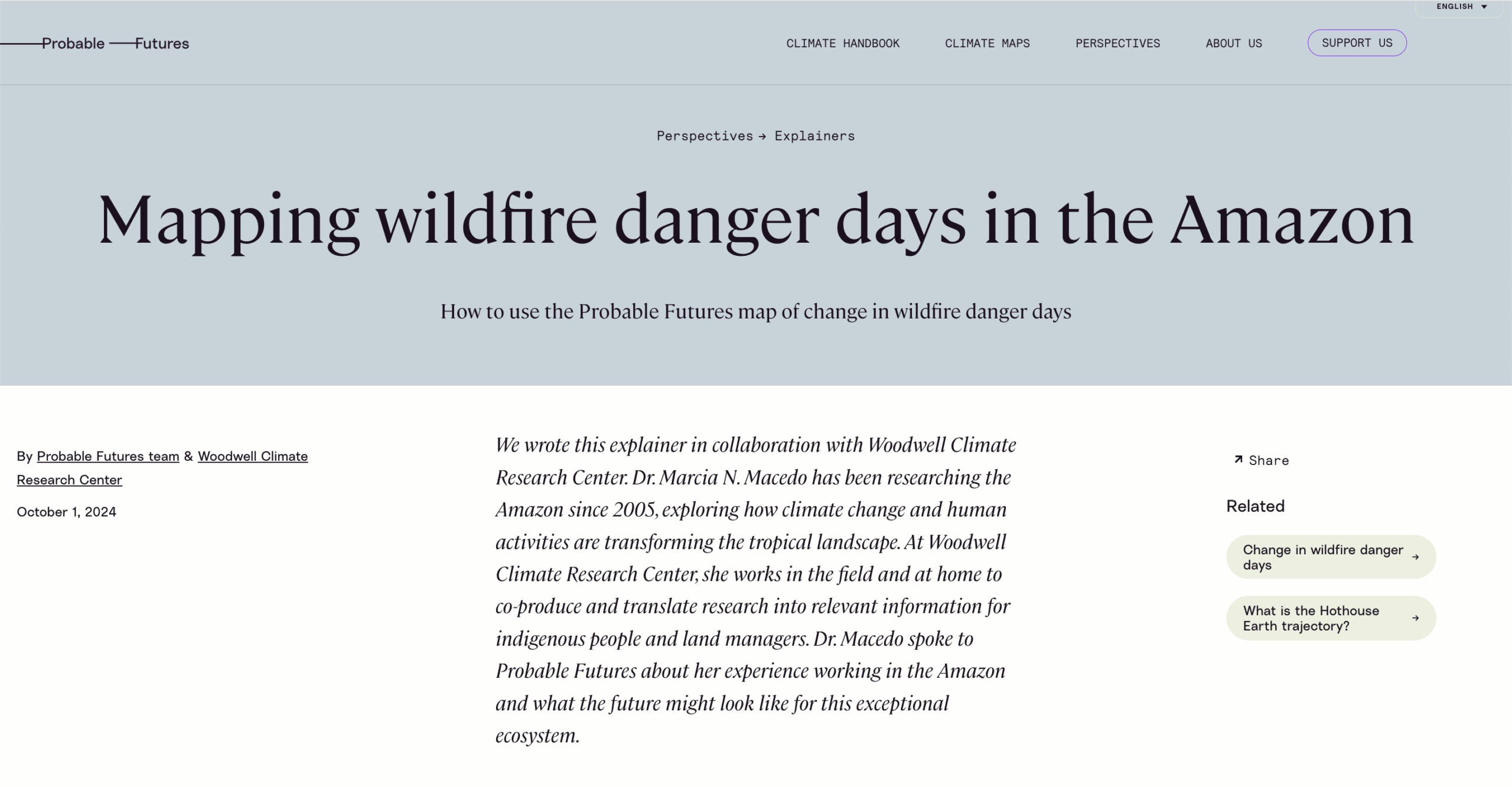
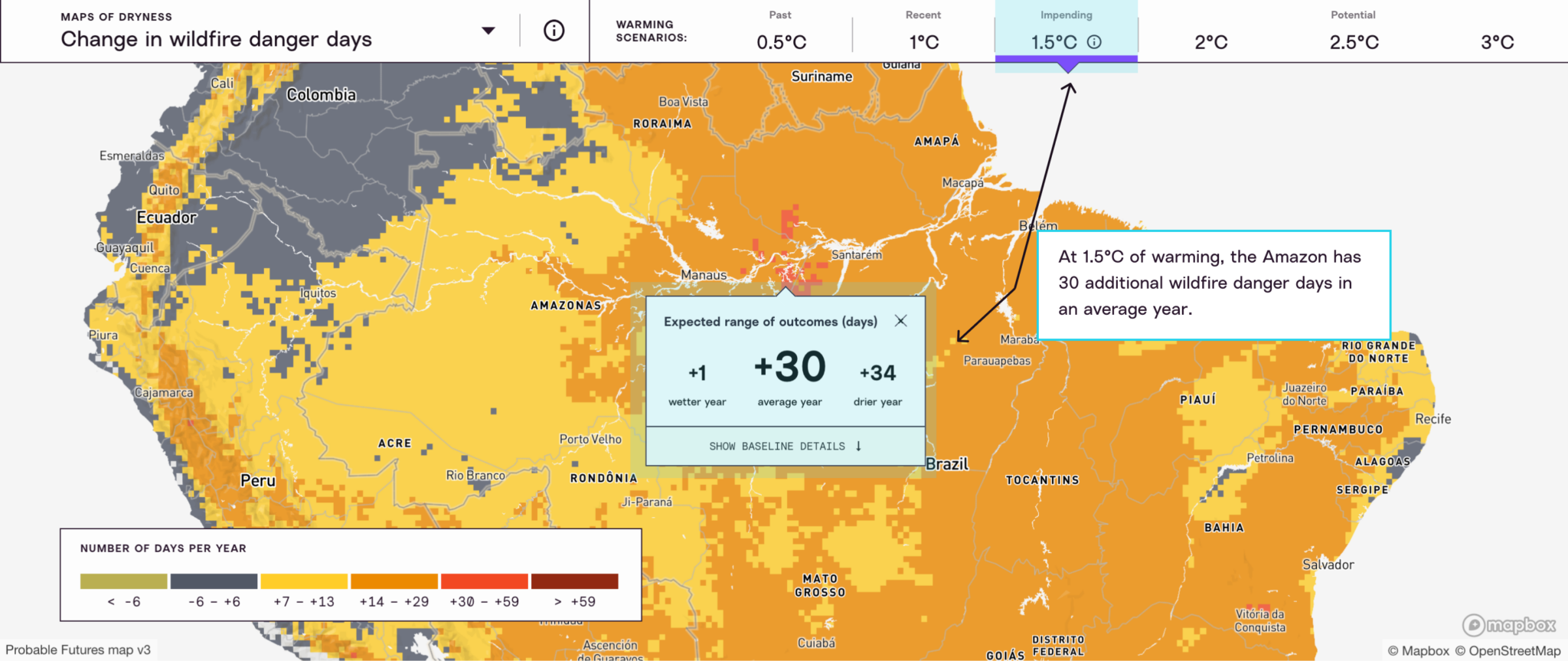
Institutions are incorporating Probable Futures data tools and resources into their day-to-day work.
With our tools and resources, these organizations factor climate considerations into the work they do every day, from humanitarian mapping to agricultural and insurance-related risk analysis.
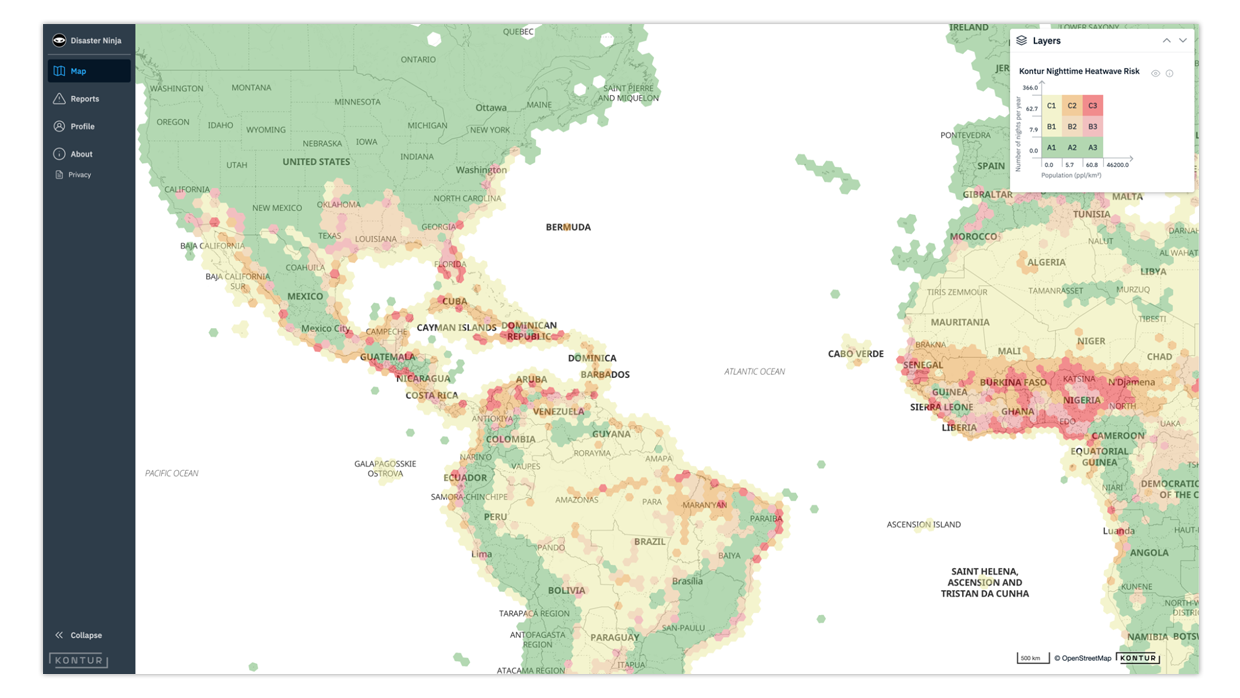
“By overlaying Kontur data with the Probable Futures’s map data, we have been able to add the humanitarian perspective to the impacts of climate change. This enables local communities to visualize the challenges ahead and, in turn, engage their governments to defend their right to the environment on the global stage of climate policy.”
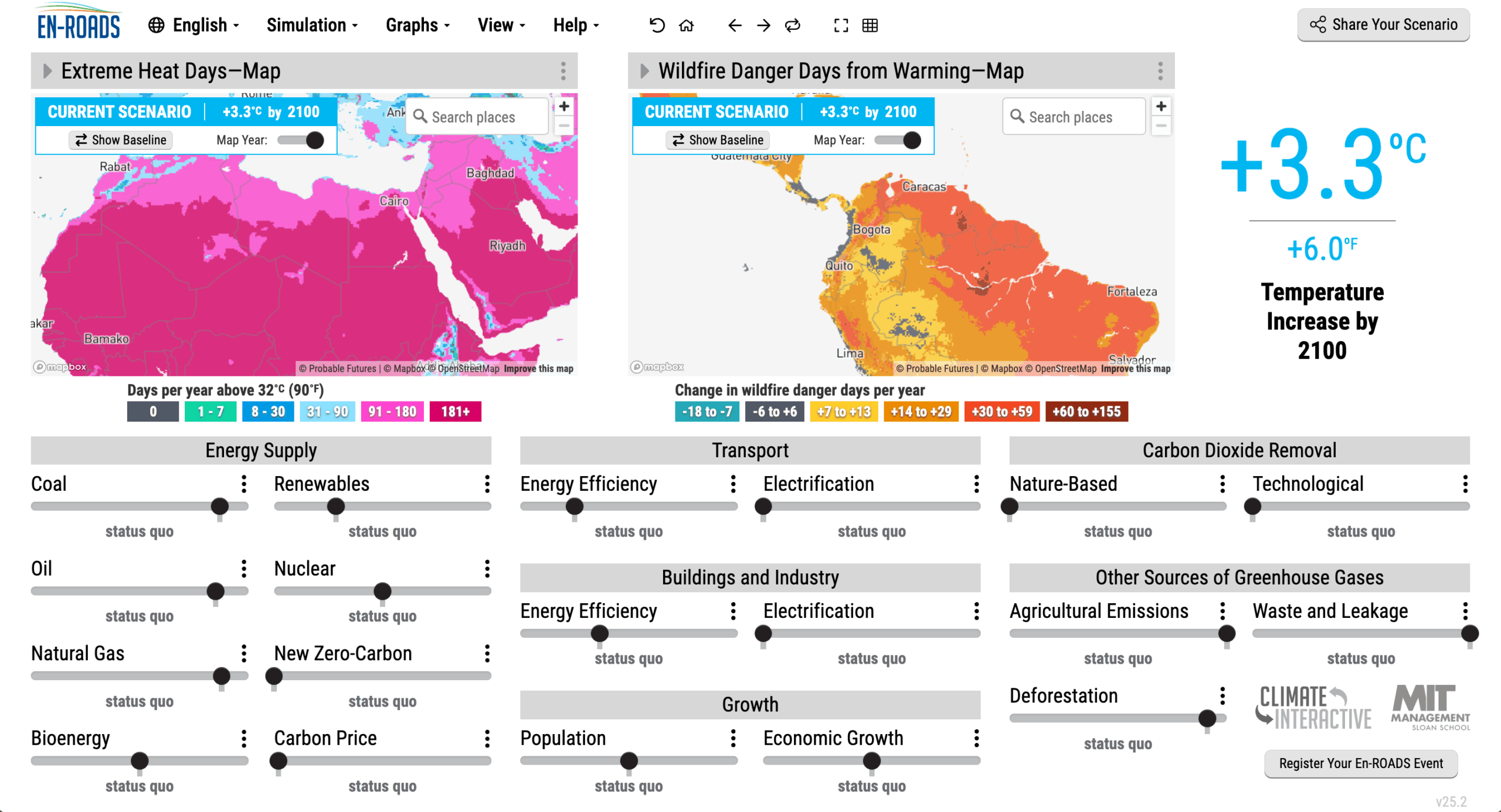
“Integrating Probable Futures’s vivid heat, drought, and wildfire maps into our online simulation tool allows our global users to show top decision-makers the concrete benefits of preventing future warming in more visually powerful and locally relevant ways.”
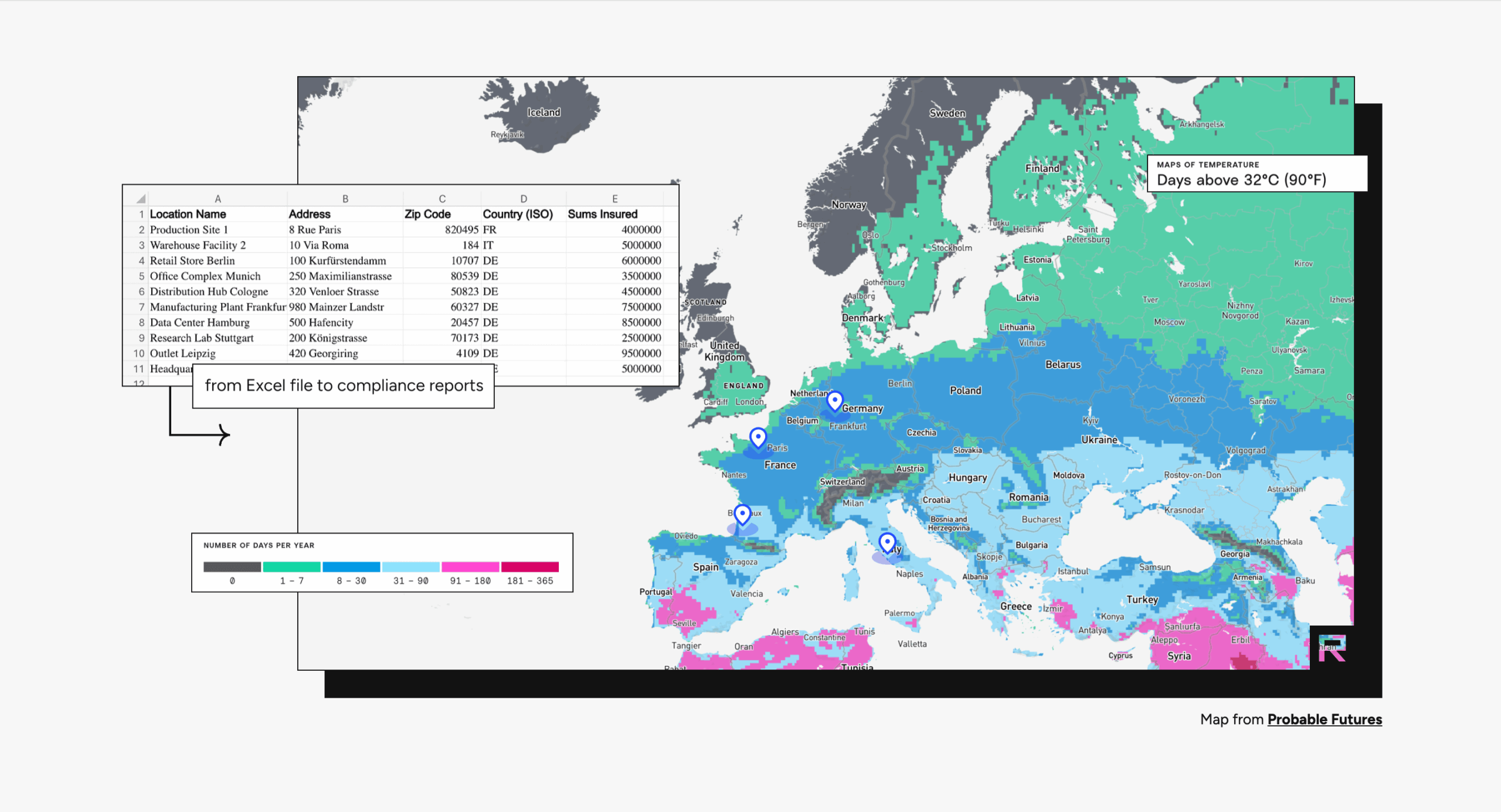
“Probable Futures’s tools were a great starting point for RiskCube, and we always received quick responses when we needed support. We were able to adapt and translate the tools into different use cases.”
“Probable Futures helped me start to have conversations with partners and team members who are not climate scientists. Now, I say, ‘It’s about being resilient, being able to be there for our customers, and our customers being able to be profitable, successful businesses no matter what the backdrop of climate is.”
“I couldn’t adequately prepare our organizations and their communities for disaster or help to mitigate the impact of these events without predictive tools and climate literacy resources such as those that Probable Futures provides.”
“We usually restrict inclusion to tools developed by or in partnership with a federal agency, so we took a close look at your site before deciding on it. I’m happy to say that we’re very favorably impressed! It’s clear your team used valid science, and then thought deeply and executed cleanly to make this content accessible.”
We talk about climate change in refreshingly practical ways that resonate with a wide audience.
When people read our work, they often say we’ve presented them with a new perspective on climate change. In our own published work and collaboration with other thought leaders, we are changing the conversation around climate change.
Probable Futures has a powerful, vivid, and human way of communicating the climate crisis. It makes climate change accessible by showing how it actually impacts your life, business, and community.
Probable Futures has been instrumental in how Gitterman Asset Management thinks about climate adaptation and how an unstable climate may affect the capital markets, starting with insurance and then flowing into mortgages, municipal bonds, and real estate valuations.
Probable Futures brought an impeccable sense of design to communicating the most complex issue of our time. They’ve built a practice around communicating climate risk, which is why their materials are welcomed by both 6th graders and the leadership of the world’s largest investment and consulting firms.
Perspectives is where we share reflections, resources, and stories about our changing climate.
To understand and anticipate the ways that climate change will affect civilization, it is essential to question how we got to the point where we think of nature as ‘outside’ of where we live. The answer lies, it turns out, in the very stability of cherry blossom records.”
How could my experience be in such conflict with ‘the rules’ around climate communications? I started wondering if the climate communications rules might actually be limiting conversation around climate change, or, further, if they could be boxing out new people from the climate movement.”
Today, our climate is changing more rapidly than at any point in human history. We will need to think in new ways about what it means to adapt in the context of settled civilizations. Adaptation to climate change in modern life can take many forms, from changes you make in your own backyard to initiatives organized by governments and institutions. Many of these strategies and technologies already exist and with thoughtful planning and proactive action, we can better adapt to maintain our economies, ecosystems, and societies.”
Alison Smart and Spencer Glendon co-author opinion pieces for a broad audience.
When applied to strategic decision-making, simple concepts of climate literacy can result in an outsized return of risk reduction and opportunity discovery.
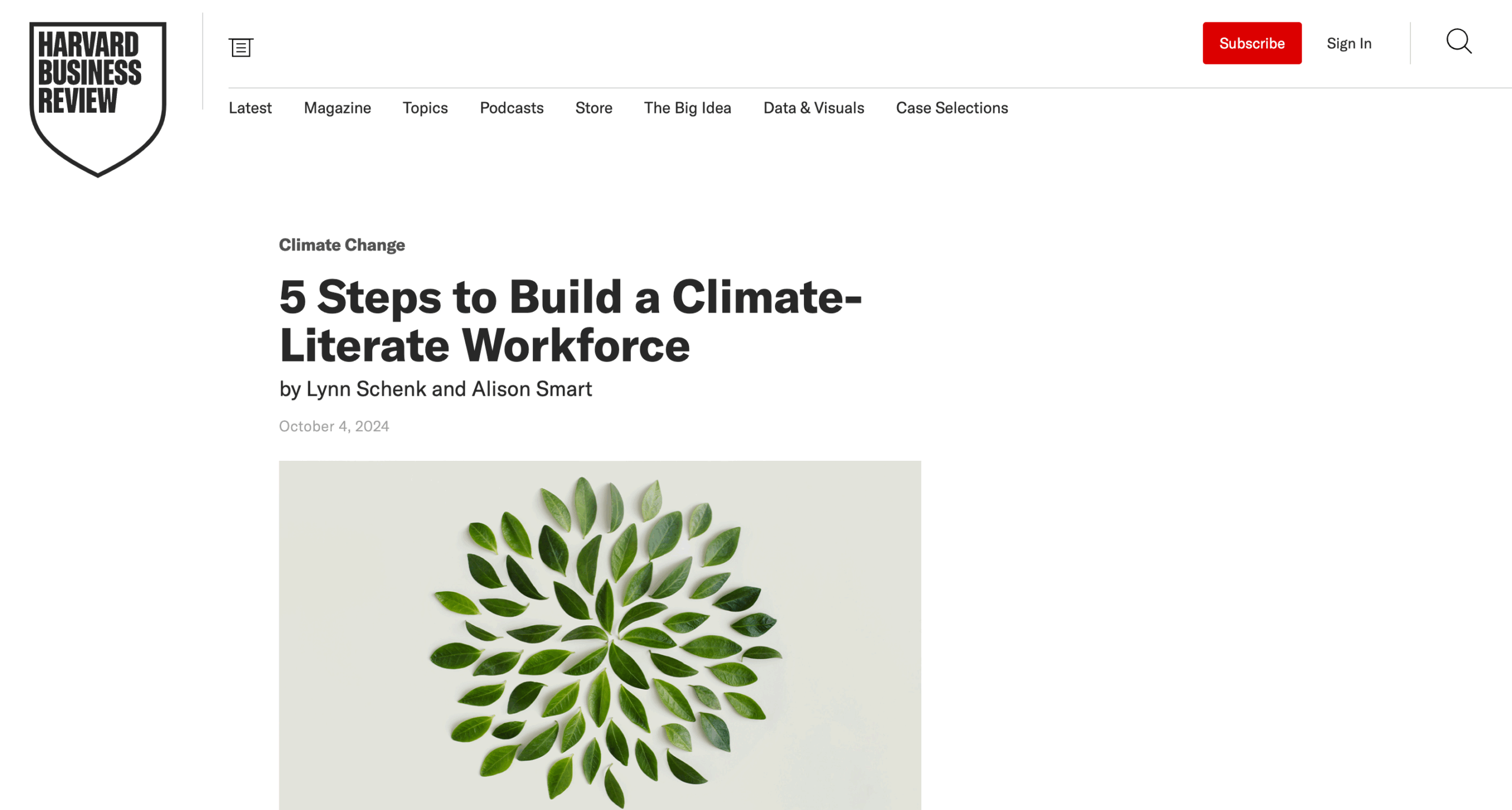
The end of climate stability signals the end of the insurance market as we know it. Will it also signal the beginning of a broader understanding of physical risks by equity and debt holders, regulators, and citizens? The answer to that question will determine whether climate risk changes capital markets forever.
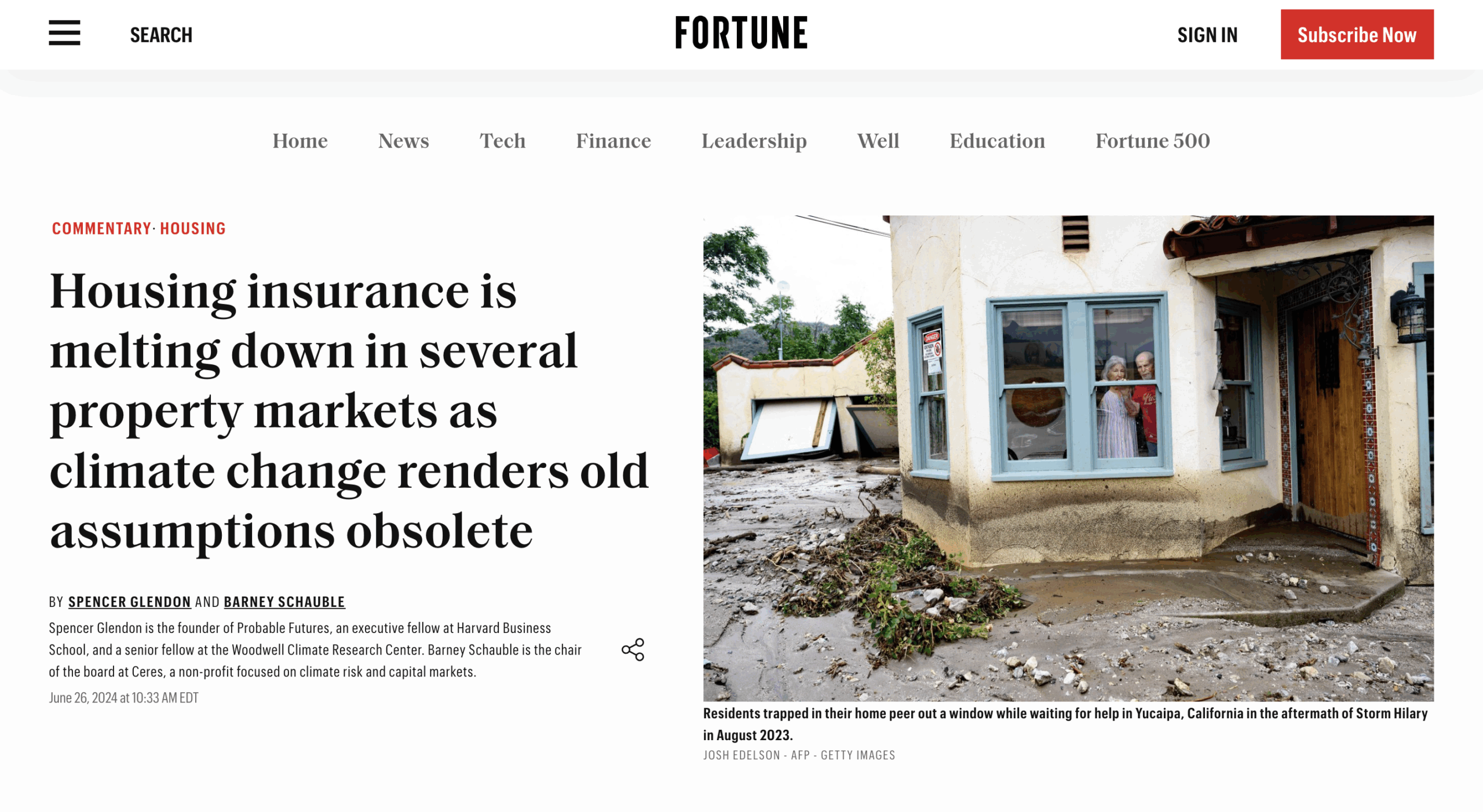
The Nest Climate Campus is the official event partner of Climate Week NYC and the largest in-person climate event in the US, hosted annually at the Javits Center in New York City. In 2024 alone, over 9,400 individuals from 4,400+ organizations attended the campus to hear talks, lectures, and panel discussions on key topics in climate change.
From presenting climate data with comedians in 2023 to giving one of a select few climate adaptation-focused keynotes during Climate Week NYC 2024, Probable Futures has shared the Main Stage at Nest to give leaders new ways to communicate about climate change.
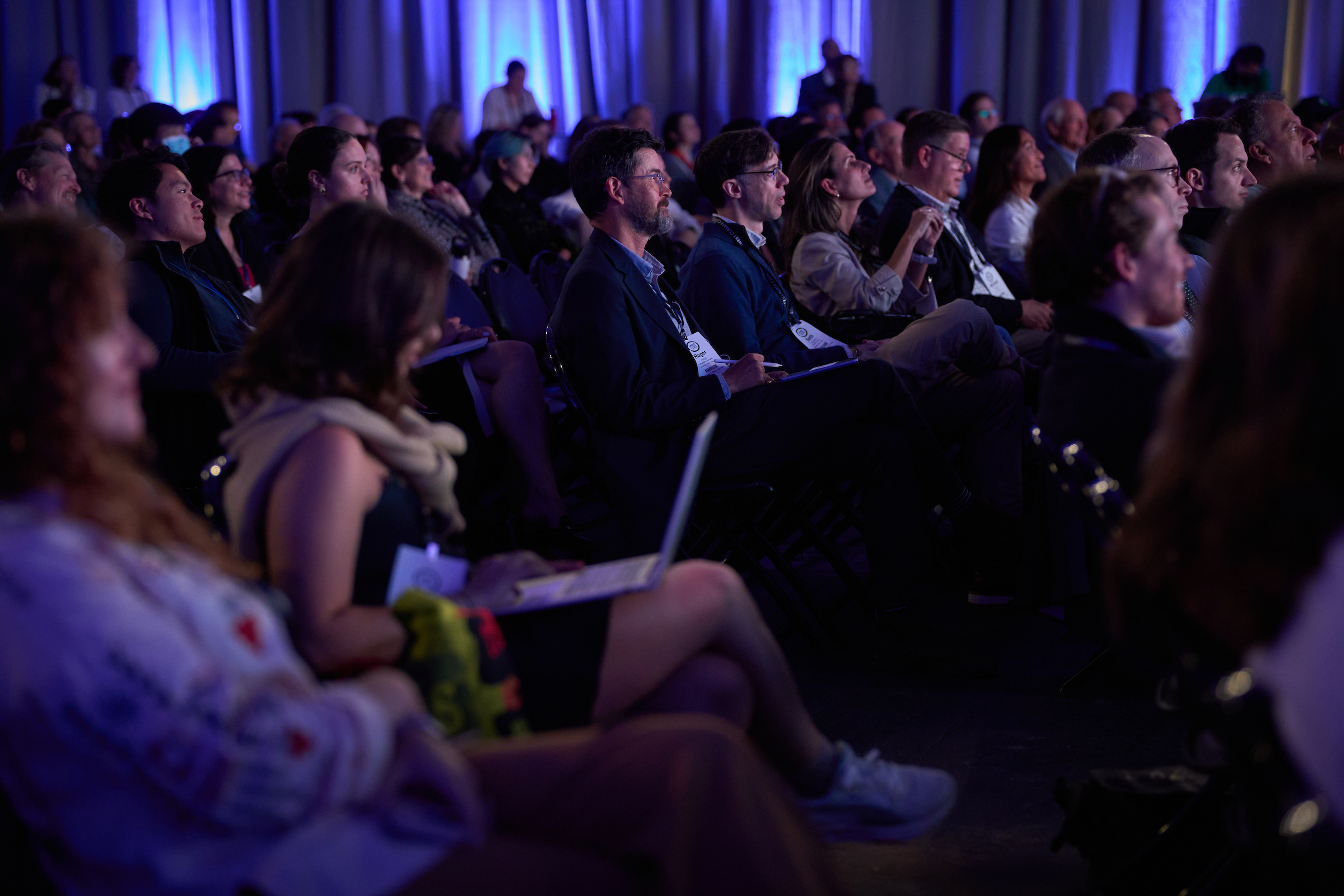
Living, and even laughing, in a changing climate
It might have seemed like an unlikely partnership when we teamed up with comedians Esteban Gast and Pratima Mani during Climate Week 2023, but for us, it made perfect sense. If climate change is a part of everyone’s life, why shouldn’t it also be a part of our entertainment?
The Climate Comedy Cohort, led by Estaban Gast, works to incorporate honest discussions of climate change into comedy. Both our organizations were curious if comedy could be a successful vehicle for some of the key fundamentals of climate science. Together, we developed a keynote talk for the Nest Main Stage in 2023, exploring a new kind of climate communication.
“Working with Probable Futures and their suite of science-driven, visual, and memorable tools has deepened my understanding of the world around me and changed the way I communicate the urgency of the climate crisis in my work.”
We asked ourselves, how can comedians and storytellers start incorporating climate in successful ways? How can comedy help us tell a compelling story about our changing climate?
When Nest invited us back to speak on the Main Stage during Climate Week 2024, we saw an opportunity to experiment with a new topic: climate adaptation.
Climate adaptation as process and culture
Instead of once again sharing the fundamentals of how our climate is changing, we wanted to explore how we as humans can change to better adapt to climate instability. Looking around the climate community, we felt there wasn’t a strong enough presence advocating for thoughtful, risk-informed adaptation. We wanted to start a new conversation about climate adaptation during Climate Week NYC 2024.
Spencer Glendon, Founder of Probable Futures, began creating his talk by considering adaptation as a part of culture and everyday life, rather than a specialized topic for a few professionals. When he stepped onto the Nest Main Stage to give his keynote address, Spencer had shaped something unique: A new way of approaching climate adaptation that could resonate with anyone, regardless of their expertise or sphere of influence.
Amid a busy, eventful Nest Climate Campus, during a week packed with talks about climate change, the talk by Spencer stood out.
“Probable Futures always hits a responsive chord on the Nest Climate Campus. Their presentations are engaging, insightful, inspiring, and impactful. Spencer Glendon spoke with wonderful clarity and appropriate humor about the reality of climate change, all while emphasizing the urgency of resiliency and adaptation.”
The Main Stage at the Nest Climate Campus helped us reach new audiences and leaders, validated our approach of finding distinct ways to talk about climate change, and pushed us to evolve our thinking to cover new topics.
Our unique approach to the climate conversation has earned us our reputation as a trusted voice on climate change and recognition as thoughtful communicators.
